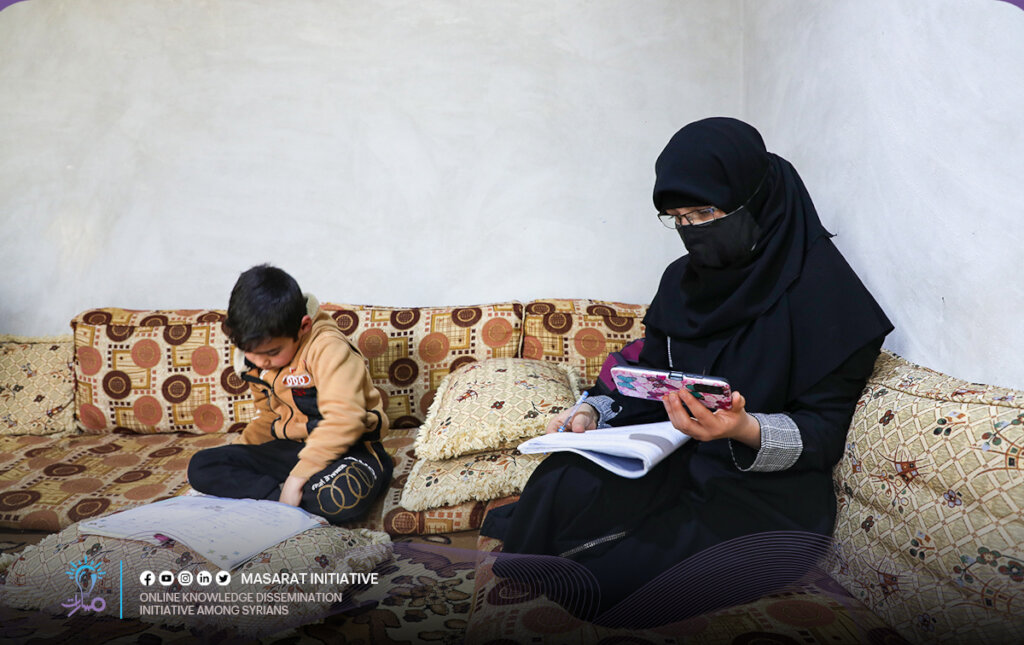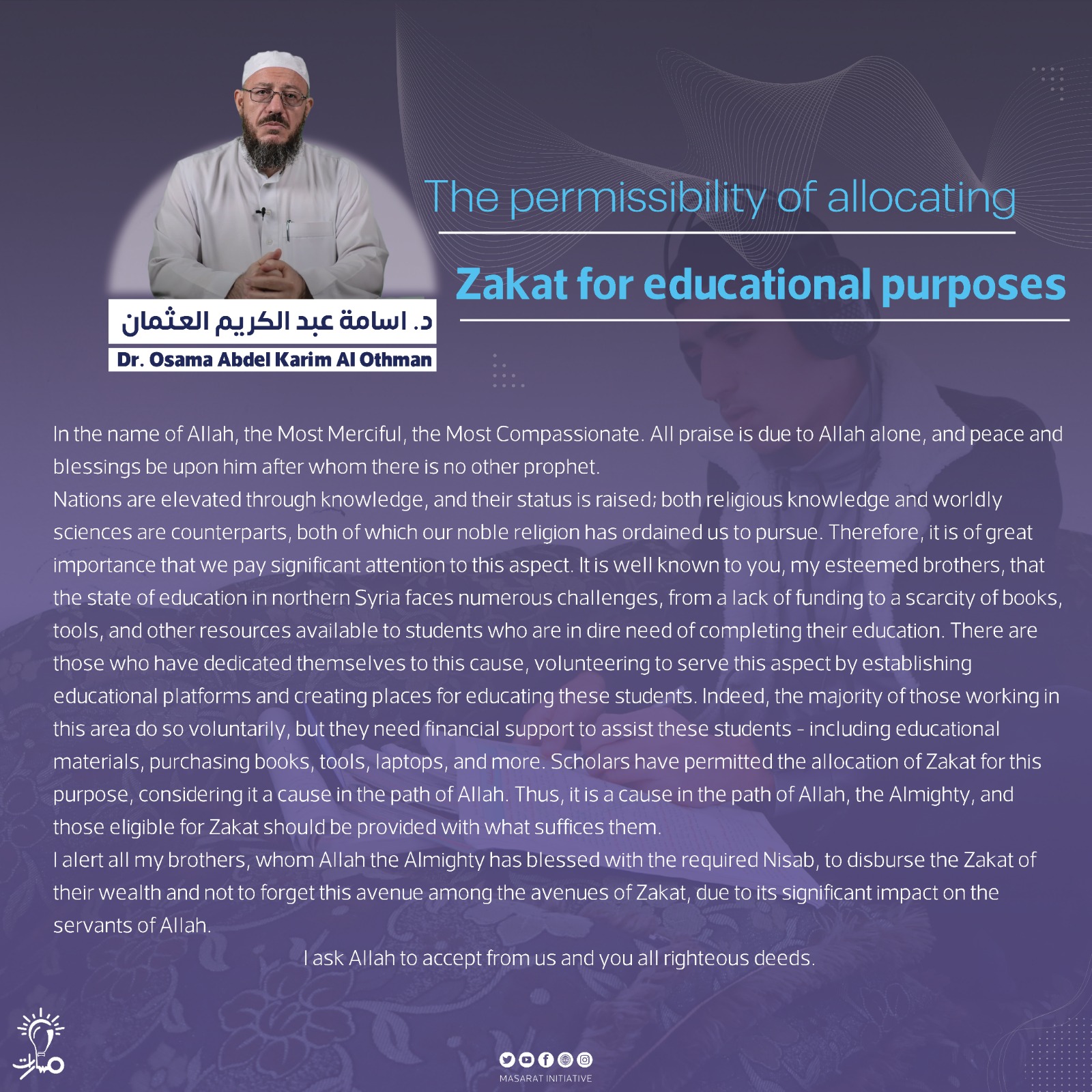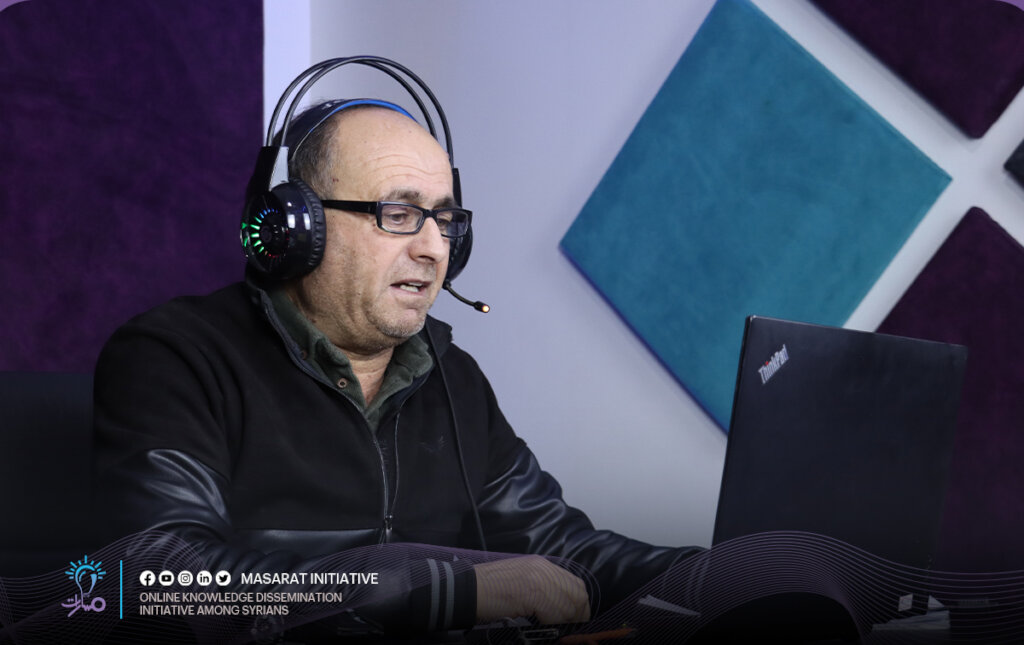There are numerous legislations for zakat on al-mal derived by scholars and jurists from the Quranic texts and Hadiths regarding the zakat on al-mal and its rulings. This highlights the importance of discharging zakat on al-mal and not neglecting it, given its significant role in fulfilling the needs of the poor and the needy; it also brings benefits to the zakat payer by blessing and purifying their wealth.
In this article, we will discuss various rulings related to the obligation of zakat on debt and borrowed al-mal in Islamic law, in addition to the rulings on zakat for al-mal saved to repay debt.
The Concept of Zakat on al-mal with Debt
Zakat for those who have debt is subject to two opinions:
The first opinion states that the presence of debt prevents zakat, which is agreed upon by the majority of scholars. However, there is a difference in the types of al-mal that prevent zakat, but business commodities and money do if there is debt preventing their zakat.
Evidence: The saying of the Prophet Muhammad (peace be upon him), “The best charity is that given out of wealth, and start with those whom you are responsible for.” Narrated by Bukhari.
The second opinion holds that debt does not prevent zakat, which is the stance of Sheikh Ibn Uthaymeen and also Sheikh Ibn Baz; their evidence is that when the Prophet sent his collectors to gather charity, they did not know whether the people had debt or not.
Ruling on Zakat for Debted al-mal in Islam
The majority of scholars believe that debt does not absolutely prevent zakat; this view is supported by most scholars and is based on the fact that the Prophet did not indicate this through authentic Hadiths but collected zakat from people without asking about their financial conditions.
Some scholars argue that debt does not prevent zakat on visible assets such as fruits, cows, sheep, and camels. If a Muslim has al-mal but owes some people for things borrowed in advance, this debt does not prevent zakat on their primary al-mal.
Is Zakat Due on al-mal of Debt?
Zakat on the al-mal of debt is applicable in two scenarios:
- The first scenario is when the debtor acknowledges the debt and is capable of repaying it at any time; here, zakat is due annually on the original owner of the al-mal, not on the debtor.
- The second scenario is when the debt is distressed, or the owner of the debt denies it. In this case, zakat is not due until the al-mal is recovered; zakat should then be paid for one year or for all past years, which is closer to piety.
Sheikh Muhammad ibn Salih al-Uthaymeen, may Allah have mercy on him, stated, “The correct view is that zakat is due every year if it is on a wealthy, generous person because it is considered as if it is present with you; however, it is paid when the debt is received, and if desired, its zakat can be paid along with the zakat on other al-mal, where the first is a concession and the second is a virtue, and quicker in absolving responsibility.”
Is it permissible to pay zakat for al-mal to a debtor?
Yes, it is permissible because it falls under one of the eight categories mentioned by Allah – the “Gharimin,” those who cannot repay their debts, and can receive from zakat funds to settle their debts.
Zakat on al-mal Saved for Debt Repayment
If al-mal saved to repay debt reaches the nisab by itself or in conjunction with other al-mal, and a lunar year passes on it, zakat must be paid, provided there is other al-mal exceeding the owner’s needs to replace the debt.
Rulings on Zakat for Borrowed al-mal and al-mal Lent to Others
Firstly: The zakat on borrowed al-mal, if it reaches the nisab (minimum amount required for zakat) and one lunar year has elapsed, is obligatory on the original owner of al-mal, not on the borrower; unless the borrower fully owns al-mal, in which case he must pay the zakat on it.
Secondly: Al-mal lent to others, if lent to a recognized person and repayable upon request, is subject to zakat once repaid to its owner. However, if the borrower is unable to repay due to insolvency or refusal, zakat is not obligatory on this al-mal until it is recovered; once recovered, zakat is due for only one year.
How does one who is in debt pay zakat?
If a Muslim possesses other al-mal besides the debt, and it reaches the nisab and a lunar year pass, they must pay zakat on it. Allah will help him settle his debts, as debt does not prevent the obligation of zakat, though this is a subject of scholarly disagreement. The principle is to pay zakat on his al-mal even if he is in debt.
From the “Fiqh Encyclopedia”: “Those who believe that debt negates the obligation of zakat in its equivalent amount in zakatable al-mal, most stipulate that the zakat payer should not have any other al-mal with which to settle the debt unless it is beyond his basic needs. If he has surplus al-mal, it should be allocated against the debt, thereby securing the zakatable al-mal to be zakat-free.”
Masarat Initiative for Vocational Training in Syria
Amid the challenges faced by thousands of students in continuing their education due to refugee conditions and the lack of necessary facilities, a free educational initiative was launched. It aims to serve the educational sector and facilitate access to all groups, particularly those in need such as orphans, individuals with disabilities, and widowed women.
Masarat offers education through its specially designed systems that cater to the current circumstances of students, ensuring their educational needs are met without discrimination, ensuring equality for all groups:
1- An interactive educational system between students and teachers.
2- A non-interactive educational system via a management platform. 3- A knowledge-based initiative that includes a YouTube channel.
Your zakat donation today enables the Masarat Initiative to broaden its impact, having educated over 31,000 children to date.










